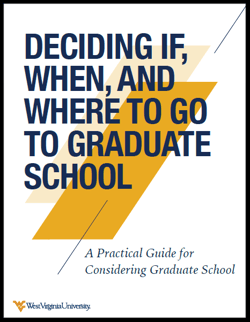
You’ve probably heard it said that pursuing a graduate degree in the humanities may leave you without the necessary skills to quickly land a job post-graduation. While it’s true that studying humanities might not put you on the same quick employment track as a degree in business or nursing, it’s been proven that a graduate degree in humanities will actually provide you with skills invaluable to the global workforce.
Here are three reasons to consider a graduate degree in humanities.
The humanities give you a broad knowledge base and communication skills that will make you a valuable asset to any workplace.
As a humanities major, you’ll spend much of your time in communication (written and verbal) with your professors and other students discussing different philosophies, works of literature, historical events — all while strengthening your critical thinking skills. A degree in humanities will give you crucial communication skills, many of which employers value as skills they want in their employees, especially for managerial positions.
And in a world where jobs are increasingly computerized or outsourced, this social and emotional intelligence will set you apart from the competitive pool of job applicants. In fact, social and emotional intelligence, as well as the critical thinking and problem solving skills that humanities graduates have, open the door to virtually any workplace. The Huffington Post points out that you can learn many career-specific skills on the job, but good communication skills and critical thinking skills can’t always be learned from a training manual.
Humanities majors generally earn the same amount as many pre-professional majors.
A common concern of those considering pursuing a graduate degree in the humanities is that it literally won’t pay off. But this simply isn’t true — in fact, humanities majors generally earn the same amount over a lifetime as do pre-professional or professional majors.
The main difference in terms of income between humanities and pre-professional degrees is when this money is earned. The peak earning years for humanities graduates come more toward their middle-age years, but by then they’re earning $2,000 more on average than their contemporaries with other professional degrees.
Getting your graduate degree in a subject you enjoy will better equip you for the job market in the long run.
Too many students pursue degrees they aren’t really invested in because they’re told that’s the best way to ensure a financially secure future. Often students will switch areas of study because they aren’t happy, which increases the time needed to receive a degree and makes it less likely they’ll even finish a degree at all. But if you study something you’ll enjoy, you’re more likely to see it through until you receive your degree.
Even after graduation, people are constantly changing their minds about what they want to do. Many people switch careers over their lifetime. Remember those communication and problem-solving skills we talked about earlier? They’re invaluable no matter what you decide you want your career to be. The skills you’ll learn as a humanities major — especially if you’re passionate about what you’re studying — will last you a lifetime.
Getting your graduate degree in the humanities isn’t futile. On the contrary, it could be the most valuable thing for your career. Don’t be dissuaded by the unfounded opinions that humanities majors earn no money or are familiar with a life of unemployment. In fact, some of our most influential social and political figures got their graduate degrees in the humanities, so you’re in good company!
Humanities degrees will equip you with skills that can’t be taught in a textbook or on the job. So whether your hidden passion is for history, philosophy, or English, do some research for yourself and plan for a lifetime of success!
Are you considering pursuing a graduate degree but still have questions and concerns regarding what this would actually mean? We invite you to download our free eBook — Deciding If, When, and Where to Go to Graduate School — in hopes that WVU can help you to answer some of these questions.










